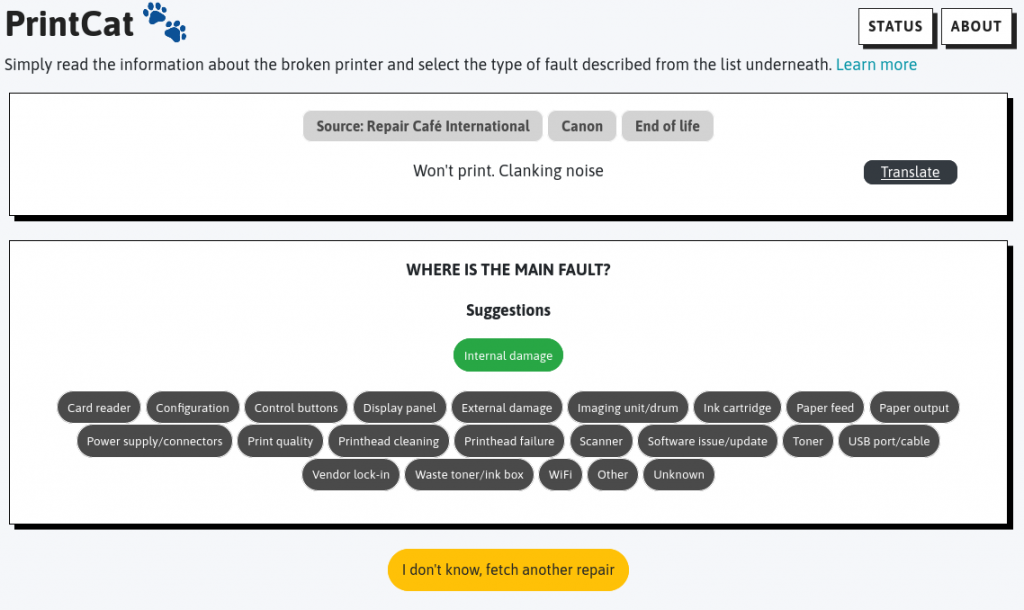This post is also available in French and Dutch on the Repair Cafe Foundation’s website
The repair data we publish from community repair events can be incredibly powerful. It can help us advocate for more repairable products and pro-repair policies.
Today in celebration of Earth Day, our founding member The Restart Project is launching “PrintCat”, a fun opportunity for everyone to get involved in analysing data on over 800 broken printers brought to Repair Cafes, Fixit Clinics and Restart Parties around the world.
We all know that printers can be frustrating, easy to break and hard to fix. We want to understand why they fail so that we can tell policymakers how future models can be made easier to repair. Repair reduces waste and lessens the strain on our planet’s resources.
How you can get involved

Head over to PrintCat and join the investigation. You’ll be presented with information about a broken printer and you’ll be able to select the most appropriate fault from a comprehensive list. Once you’ve selected an option, you’ll see information about another printer. The more printer faults you can categorise, the more we learn! PrintCat shows each printer to three people to help confirm the right category. If you want to learn more, you can join a conversation about it here.
Why printers, and why now
Until now, there’s not been any regulation on printers’ repairability. Since 2012, printers manufacturers have had a “voluntary agreement” at EU-level, aiming to “reduce the environmental footprint” of printers, and exempting them from formal regulation. Manufacturers are currently discussing a new version of the agreement, and the draft version we’ve seen is extremely weak on repair. If approved, manufacturers would not commit to making spare parts available for printers priced below 350eu.
What we hope to achieve
Most printers brought to community repair events fit in this category, so we thought it would be worth exploring why they fail. The European Commission could reject the voluntary agreement proposed by the industry, and decide to develop regulations on printers. We hope our findings will help make the case for more ambitious measures tackling the repairability of printers.
And we also hope many people will enjoy contributing to PrintCat and learning more about why printers fail. Over the next few months, there will be more opportunities to analyse data from the Open Repair Alliance’s datasets – so watch this space!
Michael Sansom
I have had several printers fail when there is nothing wrong with them except the ink reservoir was full and they where not accessible when it is an inevitable problem and should be an easy maintenance task. Also put a ling to Facebook or any way online way to reach people ?
Ugo Vallauri
Hi Michael, we’ve heard of these problems – however so far they don’t seem common in the data we’re analysing. Here is an update on the task: https://restarters.net/printcat/status
We’ve promoted PrintCat on social media, including on Facebook, via the pages of the members of the Open Repair Alliance, although we don’t have a dedicated Facebook page for the initiative